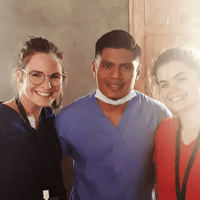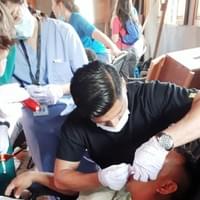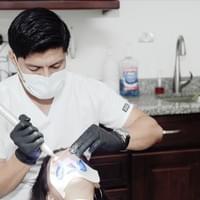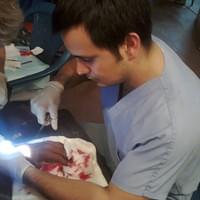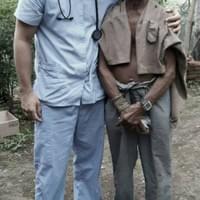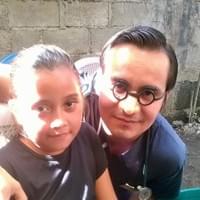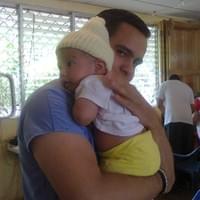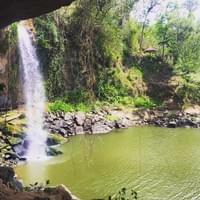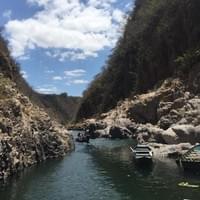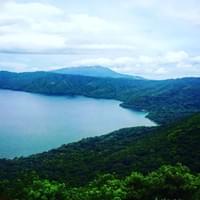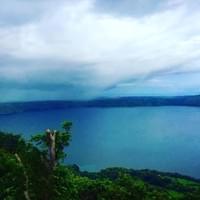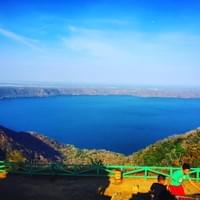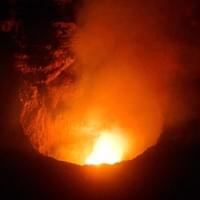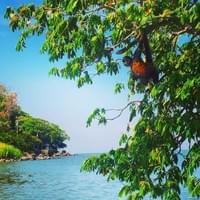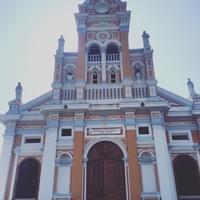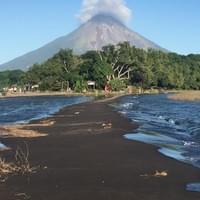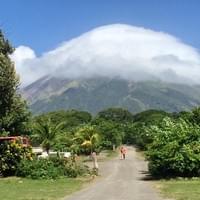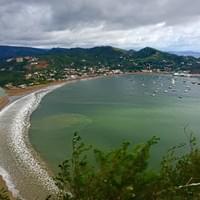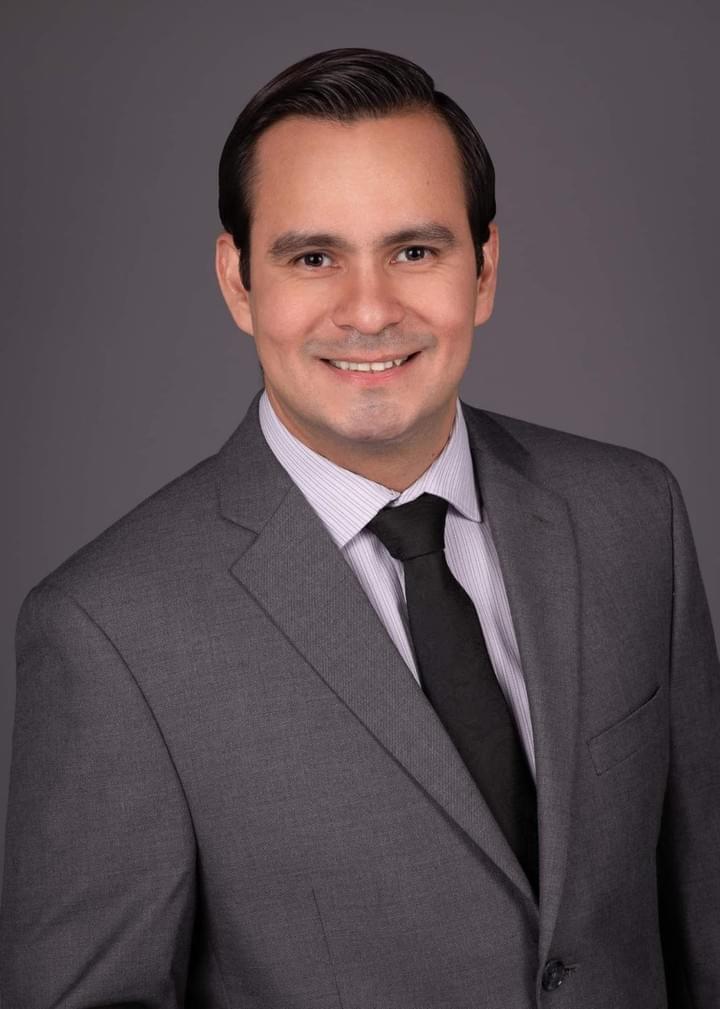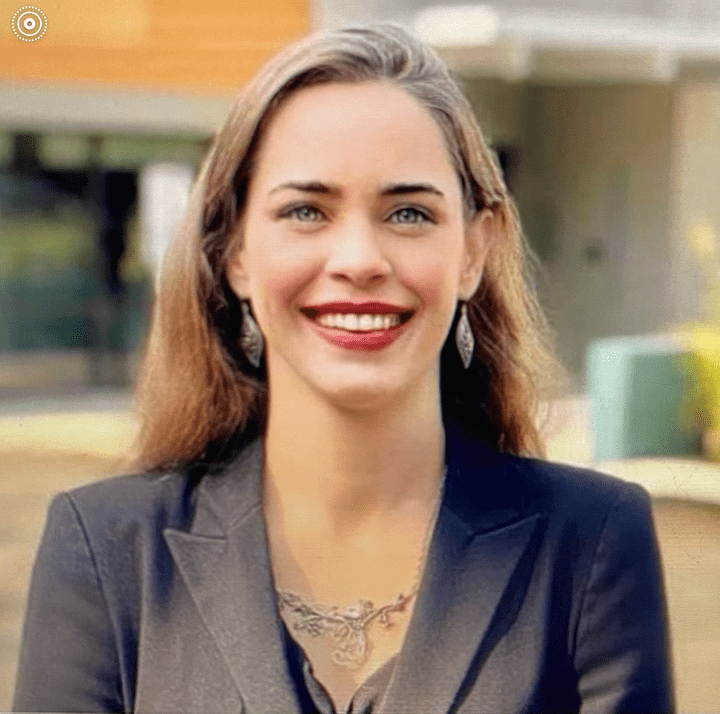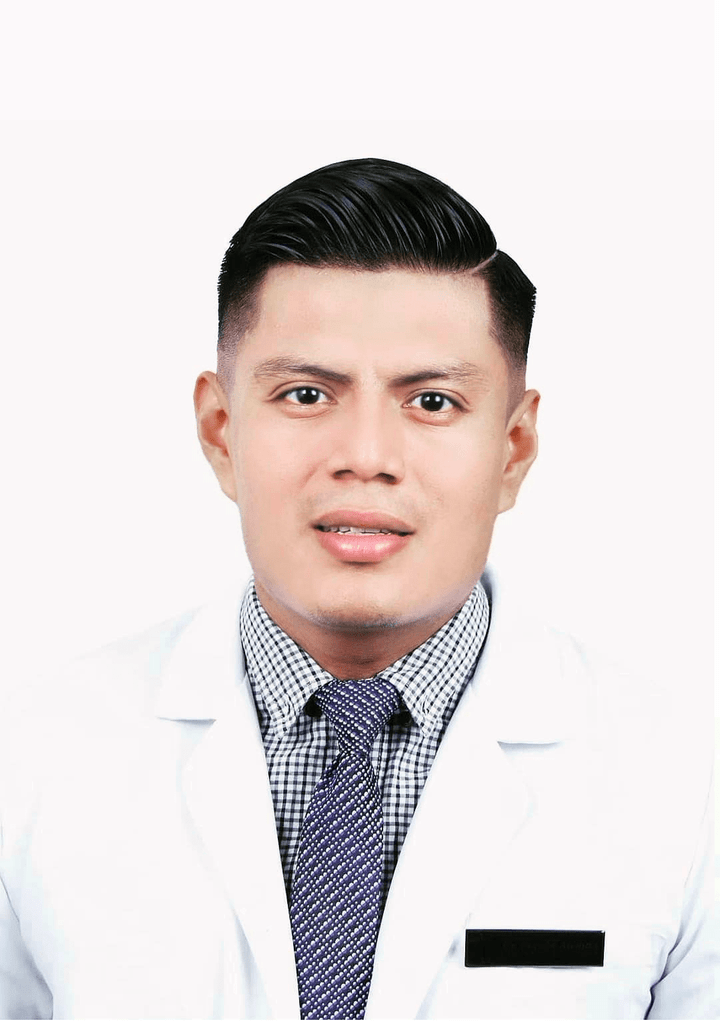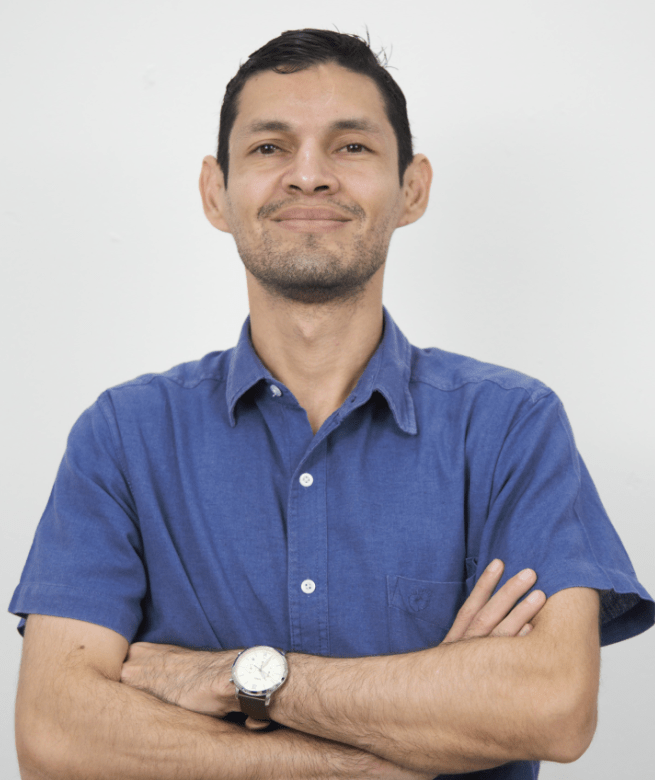
The power of knowledge transferred between
Synaptic Communities
Who We are
We believe in the power of knowledge transferred between communities. We are a non-profit organization that provides training services to students and professionals alike which also benefit Nicaragua's most under-served communities. We provide a medical training service to international students who want to define their vocation while also providing at-risk, under-resourced communities in Nicaragua with free public health, medical, dental, and veterinary attention.
Mission
To foster a world where true development is seen not as a one-way transfer between the haves and have-nots, but as a knowledge exchange between two communities respected for their valued contributions.Vision
To facilitate the exchange of knowledge amongst communities of the global north and global south via mutually beneficial exchange learning programs, serving Nicaragua's most underserved communities.General Objective
Provide low-resource, at-risk communities with free education and health support while providing participants with the opportunity to receive advanced education support training from Nicaraguan education professionals, participate in innovation projects, or the opportunity to define their vocations and learn from Nicaraguan healthcare professionals working in a low-resource, rural environment.Specific Objectives
1. Provide medical, veterinary, dental, psychological and public health care attention to at-risk communities in Nicaragua.
2. Promote and facilitate the exchange of knowledge between health professionals from Nicaragua and international volunteers.
3. Define and encourage the vocation to serve for international participants.Our Medical Program
Place of work: Under-served communities of Nicaragua.
Program Duration: 8 days
Program Director: Dr. Cesar Antonio Boza Gaitan
Minimum Number of Participants: 15 people
We guarantee that your Synaptic Communities (SC) trip to Nicaragua will be an amazing and unforgettable experience. We will provide you with all the tools you need to ensure that this trip is a huge opportunity to receive rural medical training and learn about medicine in another country as well as provide a free medical service to people in Nicaragua’s high-risk communities.
Seminar
On the day after arrival, the seminar starts at 8am in the Hotel auditorium and ends around noon with a 15-minute morning break. During the seminar, the students will meet the SC Staff; learn about the culture of Nicaragua and the communities where they will be working. One of the doctors will also give a brief class on the pathologies and treatments that they will see during the clinic days. Synaptic Communities will provide students with a document that contains information snap-shots on these pathologies and treatments prior to their arrival in-country). The seminar will conclude with instructed practice exercises on how to take vital signs as well as a mock-clinic exercise to prepare them for the clinic days.
Hands-On Training
Students will arrive to the communities at 8 am, be introduced to the SC Community Staff Member, and then be divided into groups tasked with taking the vital signs and medical history of each patient that is sent by the SC staff. This can take between 10 to 15 minutes per patient.
Once the medical history and vital signs have been taken, students will brief the doctor on the patient information and the doctor will explain the pathology and appropriate treatment while providing the patient with the appropriate treatment. The prescriptions will be signed and stamped by the doctor with the following information: 1. Name of the patient, 2. Age of the patient, and 3. Name of the medication (each medication prescribed must be on a separate prescription).
Once the prescription is ready, a student will go to the pharmacy to bring the medication/s for the patient and the doctor will explain to the patient how he/she must take the medication while the students observe.
Cultural Tour Day
As a break between the four clinic days, students will get a full day of fun activities including zip-lining, lounging in Masaya’s beautiful lagoon, and/or a visit to Masaya’s live volcano.
*Activities are subject to change depending on weather and environmental factors.
Snap-Shot Itinerary
Day 1: In-Country Arrival
Day 2: Seminar and Arrival to Community Hotel
Day 3: Clinic Day
Day 4: Clinic Day
Day 5: Cultural Tour Day
Day 6: Clinic Day
Day 7: Clinic Day
Day 8: Airport Departure Day
Travel
Students will arrive at Augusto Cesar Sandino, International Airport (MGA), Managua, Nicaragua. The SC team leader will await the group at the main exit door holding an SC sign and wearing an SC T-shirt. We require that students send us their proposed flight itinerary for validation before booking as well as a complete flight itinerary so that we may ensure a smooth trip for all.
On arrival day, students will have free transportation from the airport to the hotel. On departure day, students are responsible for the cost from the hotel to the airport.
Liability
To best ensure the student’s health and safety during this trip, we require information on all dietary restrictions, allergies, and medical issues.
Flight Ticket Policy
All participants are required to purchase insurance for their flight tickets. This insurance is essential to cover any potential cancellations or changes to travel plans. Each student is responsible for ensuring their tickets are insured to protect against financial loss.
Our Dental Program
Place of Work: Under-served communities of Nicaragua.
Program Duration: 8 days
Program Director: Dr. Gerald Aleman
Minimum Number of Participants: 15 people
"We are a national and international organization of Nicaraguan health professionals focused on rural communities in our country with the objective to be a movement that improves the state of both oral and general health of the population. Our teaching methodology focusses on developing the clinical skills of our students practicing prevention, interception, and dental correction while providing a free service to our most at-risk and underserved communities.”
The Dental program focuses mainly on the oral problems, such as gingivitis and tooth decay, that communities face due to limited access to dental care and education. These diseases cause infections which later progress or cause other chronic diseases. The Dental program provides a solution to the oral health problems of our communities by providing immediate dental care, preventive treatments, and education through mobile medical clinics. These clinics are coordinated alongside our Medical program and endorsed by the Government of Nicaragua.
Volunteers or students will be able to:
- Observe procedures such as fillings, sealants, cleanings, and fluoride application
- Assist licensed Nicaraguan dentists on minor surgeries through helping to prepare and clean the equipment and attend to the patient’s needs.
- Attend a dental mobile pharmacy guided by a licensed pharmacist tasked with prescriptions made by the dental surgeon.
- Assist with patient's dental history through using an odontogram (reading and nomenclature in accordance with the international method).
- Direct community dental hygiene workshops for children and adults
Services offered by the Dental Clinics:
• Cleaning treatment - the elimination of bacterial plaque, supra-gingival and infra-gingival tartar, and alba´s material of the teeth through a prophylaxis technique and/or brushing technique in some of the cases with manual and ultrasonic use.
• Restorative treatment and extractions - the elimination of cavities and restoration of teeth with fissures using the technique of obturation. Resins will also be applied, and in the case of very advanced cavity formation, tooth mobility, and/or tooth loss, the extractions of the tooth or its radicular remains will be carried out.
•Education Charlas- cleaning, maintenance, and the adequate masticatory process will be included in the Education Charla directed by the students prior to the patients’ treatments. Students will explain and demonstrate the correct way to brush and chew by means of a typodont.
• Referral to specialized dental centers - At the time of dental diagnosis, the patient will receive an explanation of the treatment that will be performed. However, if the work requires more specialized attention, the patient will be sent to a more specialized center free of charge (such as the hospital/dental faculties of one of Nicaragua’s universities).
What's Included
Medical Program
*Contact us for pricing
Includes:
- Hotels
- Private, local travel expenses to and from clinics and between cities when we move hotels during the trip as well as airport pickup.
- Breakfasts throughout the trip and catered lunches and snacks during the clinic days
- Clinic day expenses (medications, supplies, doctors, interpreters, etc.)
- Hired personnel (full-time trip doctor, cohort leader, cohort assistant leader, drivers)
- Transportation during the tour day and throughout the trip
Does not Include:
- Flight Ticket/Airport Entrance and Exit tax
- Laundry
- Dinner
- Personal expenses during the tour day
Flight Ticket Policy:
All participants are required to purchase insurance for their flight tickets. This insurance is essential to cover any potential cancellations or changes to travel plans. Each student is responsible for ensuring their tickets are insured to protect against financial loss.
Dental Program
*Contact us for pricing
Includes:
- Hotels
- Private, local travel expenses to and from clinics and between cities when we move hotels during the trip as well as airport pickup.
- Breakfasts throughout the trip and catered lunches and snacks during the clinic days
- Clinic day expenses (medications, supplies, dental instruments, dentists, interpreters, etc.)
- Hired personnel (full-time trip doctor, cohort leader, cohort assistant leader, drivers)
- Transportation during the tour day and throughout the trip
Does not Include:
- Flight Ticket/Airport Entrance and Exit tax
- Laundry
- Dinner
- Personal expenses during the tour day
Flight Ticket Policy:
All participants are required to purchase insurance for their flight tickets. This insurance is essential to cover any potential cancellations or changes to travel plans. Each student is responsible for ensuring their tickets are insured to protect against financial loss.
FAQs
Should I bring malaria prevention pills?
We travel to places that are free from malaria endemic. While contracting malaria is always remotely possible in any tropical country, prophylaxis is not essential in this trip.
How much money should I bring?
We recommend bringing at least US$200- US$250 if participating in an 8-day program in small bills depending on meal preference, incidentals, and personal spending.
What should I wear?
Light and comfortable clothes are necessary due to the weather. Shorts, leggings, t-shirts, flip-flops, and sports shoes are all acceptable forms of attire during the first day as well as on all seminar days.
Scrubs are required attire for every clinic day (sports shoes are fine), remember we are a team of medical professionals-in-training.
On the day tour, we suggest that you wear comfortable attire and athletic or walking shoes. There is one night when we will show you the local nightlife so you may want to pack something nice.
What will I need for meals?
For dinner, we will go to a different restaurant each night, nice but not too fancy, in order to provide a nice sampling of the local cuisine. SC will provide breakfast and lunch during the clinic days. Students are responsible for all other trips meals. Prices for the meals will generally range from approximately $10-$12 for lunch and $10- $12 for dinner so it is advisable to bring about $120-$150 for meals if participating in an 8-day program. Extra expenses such as beverages and souvenir shopping will depend on personal choices. SC will provide water for the entire trip.
Code of Conduct
- There must be no relations between staff and students.
- The organization has the right to send home (at his/her own expense) any student who does not follow the rules or is rude to the staff members or patients. In equal manner, any disrespect from the staff should be reported to the executive staff.
- For their own safety, a staff member must accompany students at all times. There can be no wandering away from the group or going out alone at night.
- All students must wear scrubs while seeing patients.
- Do not take pictures of community members without first asking their permission.
- Staff members are not allowed to drink alcohol with the students.
Other examples of student behavior that may lead to immediate dismissal:
· A threat to the health or safety of self or others
· Sexual harassment of any kind
· Illegal drug use
· Abuse of alcohol
· Failure to attend required activities
· Hitchhiking
· Unauthorized absence from the program
· Unauthorized changes in housing
· Arrest for infractions of local laws
Sign-Up
Interested in being part of our Summer 2025 cohort? Register here
*Registrations are not considered complete until the Program Contribution has been received.
Meet Our Team

Dr. Cesar A. Boza M.D. M.S.
Co-Founder and President
Cesar is the creator and director of the Medical Program. Aside from being the co-founder, he is also one of Synaptic Communities' Physicians responsible for providing medical services to poor communities and providing students with an amazing learning experience.
He is a licensed General Physician from the American University in Managua and holds a Master degree in Public Health from the Center of Investigations and Studies for Health in Nicaragua. He has over 5 years of experience as a medical teacher working with more than four Non-Governmental Organizations sharing knowledge with students while providing communities with free medical attention.
He also worked for the Global Fund as the head consultant for a national program in Nicaragua that focused on reducing the stigma that people with tuberculosis suffer. Through this role, he prepared and gave seminars in every department of Nicaragua focused on teaching doctors and nurses strategies and tools for how to reduce the stigma. He also designed the national manual on the de-stigmatization of TB, which will be used by the national Ministry of Health.
"I guarantee that the Medical Program will be both an amazing learning experience for North American students as well as an opportunity to help Nicaragua's most under-served populations with a high-quality medical service that they wouldn't otherwise be able to afford.
Medicine is the love you share helping others which will not make you irreplaceable but unforgettable". - Dr. Cesar A. Boza

Dana L. Terry M.A., PMP
Co-Founder and CEO
Dana is the creative brain behind the logo design, branding, and website. Aside from being the Co-Founder, she is also Synaptic Communities' program designer, graphic designer, and technologist currently finishing the organization’s official mobile web-app.
She holds a Project Management Professional (PMP) certification from PMI (Project Management Institute), a M.A. degree in International Relations and Diplomacy from Seton Hall University specializing in Post-Conflict Community Development and International Organizations, and a B.A. degree in International Affairs from Florida State University. She is also a self-taught graphic designer, graduate of TCC’s online mobile app coding course, and recent graduate of the I/O Avenue Coding Academy Summer 2018 Bootcamp.
Her work experience ranges from IT Project Management and Business Analytics to implementing and managing initiatives to grow community development programs, fostering innovation, and empowering women and minority-owned businesses in both Tallahassee, Fl. and Nicaragua to assisting in the program operations of international organizations based in New York.
From 2015 to 2018, she worked directly for two Non-Governmental Organizations in Nicaragua developing and implementing economic development and innovation projects as an ‘intraprenuer’, partnering with various other civil society institutions in the region, coaching local entrepreneurs, and starting projects to increase access to and understanding of technology. She hopes to open Synaptic Communities' Innovation Lab in the future.
Her publications have appeared in LSE’s Studies in Ethnicity and Nationalism, UNA-USA’s blog, UN Department of Information, and a few other online publication sites.
"We believe in the power of knowledge transferred between communities in a world where true development is seen not as a one-way transfer between the haves and have-nots, but as a knowledge exchange between two communities respected for their valued contributions. We seek to empower individuals to be the protagonists of their own development stories."
- Dana L. Terry
Dr. Gerald Aleman D.M.D.
Dental Director
As Dental Director of Synaptic Community, Gerald Alemán created and coordinates the Dental Program as well as serves as the head dental clinic professor. He is a Dental Surgeon with three years of experience working as a brigade dental professor in rural communities who has also had his own private practice in the city of Masaya for the past three years. Gerald has a postgraduate degree in Endodontics and a degree in Superior Dental Technician from UCICA (Universidad Catolica Redemptoris Mater), a university in Managua.
“The integrity of our principles plays an important role in all forms of human service. Cultivating these principles over the years has allowed me to realize that professional technical skills must go hand-in-hand with human-centered skills for true healthcare quality to be ensured.”
- Dr. Gerald Aleman

Geovanni Alvarado
Country Coordinator
Geo is a computer engineer with a Data Analysis in Public Health Research specialty. He is passionate about making a difference one day at a time.
He started working on Public Health projects in 2009 with many programs for technologies in health. For the last 5 years, he served in Central American developing communities as a Public Health Project Logistic Coordinator for Medical, Dental, and Veterinarian campaigns.
Our TeleClinic Program
Dear students,
The pandemic has been an incredibly challenging time for everyone. The mission of Synaptic Communities continues to be student medical education and support for Nicaragua’s most under-served communities. With our mission in mind, we have designed a program that will provide students with the opportunity to have a virtual clinic experience alongside Nicaraguan physicians without having to leave their homes while also helping Nicaragua’s most under-served communities. This program is going to be a five-day experience where the students will have the opportunity to virtually assist, shadow, learn, and ask questions to the Nicaraguan physicians during their 8 hour shift seeing patients from Nicaragua’s high-needs areas.
Students will also have the opportunity to engage in virtual interaction with the patients by practicing the correct intake performance and by presenting the cases to the doctors. The program will also offer the opportunity to have case discussions chosen by the same physicians the students will be shadowing.
Synaptic Communities will provide the students with a certification of participation based on their performance during the five-day seminar.
Snapshot Itinerary
Orientation Day - Program presentation and organization of the clinics/ clinical seminar.
Presenters: Dr. Cesar A. Boza and Giovanni Alvarado
Clinic Day 1 - Students will be paired with Nicaraguan physicians who will examen, treat, and advise the patients while providing students with a brief explanation of how to perform a physical examination as well as the basis of the diseases and treatments. The physician will choose 3 cases (1 per student) to be discussed at the end of the next clinic day.
Presenters: Nicaraguan physicians and interpreters
Clinic Day 2 - Same activity as Clinic Day 1, plus cases discussion on the previous case selected.
Presenters: Nicaraguan physicians and interpreters
Clinic Day 3 - Same activity as Clinic Day 1, plus selection of new cases.
Presenters: Nicaraguan physicians and interpreters
Clinic Day 4 - Same activity as Clinic Day 1, plus cases discussion on the previous cases selected.
Presenters: Nicaraguan physicians and interpretersSeminar closing talk with cultural performance.Note: Each seminar starts at 8am. There may also be minor changes in the itinerary due to local conditions beyond our control. While this is not probable, it is still always a possibility.
While we are starting with the week-long TeleClinic virtual trips, we will also be offering year-round TeleClinic virtual trips which will take place on five consecutive Saturdays per cohort.
Team Organization
Each team will consist of three students, one physician, and one interpreter. The minimum number of students required to participate in the seminar is fifteen. Each physician will treat 21 patients per each eight-hour clinic day which will allow seven patients per student per clinic.
The students will be interacting with and assisting the physician at all times during the eight-hour clinic day. Each student within the assigned team will take their turn acting as the main interviewer asking the patient questions related to their clinical history.
Synaptic Communities will provide the students with the clinical intake forms to be used during each clinic day which will need to be filled out by the students (7 per student per day). These clinic forms will include the assessments and treatment plans which will be dictated by the physician.
Important: Never forget to introduce yourselves with the patients and explain that you will perform the clinical history intake before the physician arrives. The interpreters will be available to help you with the translations.
Summary of Tasks Performed by the Students
- Clinical intake
- Physician assistance
- Case discussion preparation
- Case discussion participation
- Demonstrate understanding by answering questions to the physician based on each seen case
- Demonstrate interest by asking questions to the physicians
Summary of Tasks Performed by the Physicians
- Evaluate the student’s clinical history and provide feedback
- Take vital signs and assess each patient’s normal ranges with the students
- Perform physical examination based on the patient’s complaints and explain the proper way to do this
- Dictate the assessment and treatment plan to the student responsible for the patient’s intake
- Treat the patient and give the appropriate medication provided by the Synaptic Communities pharmacy
- Briefly explain the diagnoses and treatments
- Prepare the case discussion explanation for the students
Each physician has an average of fifteen minutes per patient
Summary of Tasks Performed by the Interpreters
- Help to translate the questions the students will be asking the patients
- Translate the answers the patients will be providing the students
- Translate what the physician tells the students and patients
- Translate using a proper medical vocabulary
Equipment Used During the Clinic Days
- Laptops
- HD cameras (Synaptic Communities provided)
- High-quality internet (Synaptic Communities provided)
- Clinic Day location building (rent provided by Synaptic Communities)
- Microsoft Teams platform for hosting the virtual TeleClinics (Synaptic Communities provided)
- Blood-pressure cuffs, Thermometers, facemasks, gowns, face shields, glucometers, urine strip tests, tongue depressors, flashlights, stethoscopes, medications, scales, and any other equipment required during the clinic days (Synaptic Communities provided)
Contact Us
synapticcommunities@
© 2018


